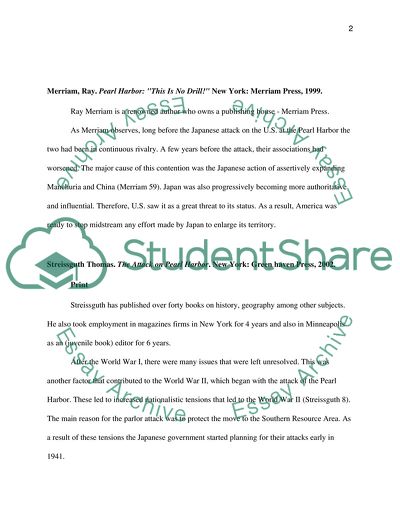Why Did The Japanese Army Carry Out The Pearl Harbor Attack Annotated Bibliography. https://studentshare.org/history/1772136-why-did-the-japanese-army-carry-out-the-pearl-harbor-attack
Why Did The Japanese Army Carry Out The Pearl Harbor Attack Annotated Bibliography. https://studentshare.org/history/1772136-why-did-the-japanese-army-carry-out-the-pearl-harbor-attack.


